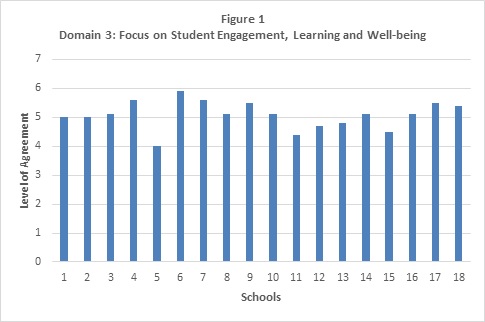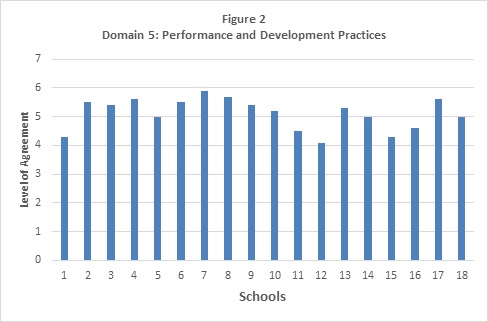
Supporting school improvement at the system level
Research 29 Mar 2018 7 minute readLawrence Ingvarson and Kate Reid explore the benefits of a system-wide approach to creating strong professional learning communities.
Supporting school improvement at the system level
School systems across Australia are supporting school leaders as they seek to create strong professional learning communities within their schools. However, schools may be at very different stages in those endeavours and may require different kinds of support at each stage.
As previously reported in Research Developments, the ACER Professional Learning Community Framework (PLCF) and Professional Learning Community Questionnaire (PLCQ) can be helpful in identifying patterns of strengths and areas for improvement for the school as a professional learning community. The Framework provides a comprehensive description of a professional learning community in five domains:
- A professional culture
- Leadership that fosters and supports a professional culture
- A focus on student engagement, learning and wellbeing
- A focus on improving professional knowledge and practice
- Performance and development procedures (feedback)
The Framework is based on a synthesis of research into the characteristics of professional learning communities that lead to improved student outcomes. Each domain is elaborated further in terms of key elements, indicators and rubrics for each domain.
While the Framework and Questionnaire can be used to take a snapshot of where an individual school stands in relation to the characteristics of a professional learning community, it can also be used at the system level to identify professional learning priorities for school leaders and teachers, resources and structures needed at the organisational level, and schools with specific needs for leadership and support.
Using the ACER Framework and Questionnaire at the school system level
School systems can use the PLCF for a variety of purposes. In 2017, ACER was contracted by one school system to provide PLCF reports for 18 schools that registered interest in participating. The reports showed that schools varied considerably in their progress towards developing a strong professional learning community in each of the five Domains. This was information that the school system could use in planning relevant support for these schools.
Figure 1, for example, shows that schools varied significantly in terms of activities related to Domain 3 (Focus on Student Engagement, Learning and Well-being), a key feature of a professional learning community. The scale ranges from 1, Strongly disagree, to 7, Strongly agree.

On average, teachers across the 18 schools only ‘slightly agreed’ with statements about the level of collaborative activity focused on data about student engagement, learning and well-being. There was a general need across the system for activities that strengthened capacities related to Domain 3 at the school level.
A more detailed picture for Domain 3 emerges from reviewing responses to individual items in Domain 3. While it was common for teachers in most schools to indicate that they felt well-equipped to interpret data and assess how well their students were progressing, there was wide variation in the extent to which they agreed with a statements such as 'We regularly use student achievement data to evaluate how well our programs are meeting students’ academic needs', 'My school regularly gathers school-wide data about student well-being and makes good use of it' and 'Collaborative review of data about student progress and development is a normal part of the way we work in this school'.
Significantly, a statement that teachers in all schools were least likely to agree with was that 'Time is specifically set aside for staff to meet to discuss data about student progress'.
Figure 2 also shows significant variation across the same 18 schools on Domain 5 (Performance and Development) in the extent to which teachers thought that effective performance and development processes were being implemented in their schools. These processes are essentially about opening up opportunities for feedback through a variety of avenues and ‘de-privatising’ practice. Quality feedback about practice and its impact is essential for professional development.

For individual items in Domain 5, there was significant variation across schools in the extent to which teachers agreed with statements such as 'I have reached agreement with the principal (or a delegate) on a useful set of performance and development goals and on ways of measuring progress toward meeting them' and 'I am confident that the performance and development process is conducted in a valid, consistent and fair manner'.
The results across the 18 schools showed that, across the five Domains, activities in Domain 5 were most in need of further support and development. In particular, there was a clear need for activities that de-privatised practice and provided opportunities for feedback through a variety of avenues that opened up teachers’ practices to each other.
The frequency with which teachers said they received feedback from colleagues based on discussing samples of their student work, or from observation from other teachers and members of the school leadership team sitting in on their classes varied significantly. Across all schools, it was relatively rare for teachers to receive feedback about their teaching from their students (e.g. via a questionnaire), from parents, or from video or audiotaping their own teaching, despite research indicating its benefits.
Making use of the data
Each school received a confidential Professional Learning Community Report. Most schools took the opportunity to have follow up conversations with an ACER staff member to discuss their reports and to plan ways forward. These conversations provided valuable insights about the innovative activities that different schools were using to strengthen their schools as professional learning communities.
It would have been valuable if leaders from other schools could have sat in on these conversations and shared their experiences about initiatives that were working and those that were not. The school system is examining ways to facilitate sharing this knowledge in the future.
Feedback from principals in participating schools indicates that the Professional Learning Community Report and follow up conversations have an important role to play in guiding strategic planning. As one principal said, the report ‘provided specific and measurable data appropriate for strategic planning’. Many principals indicated their eagerness to conduct the survey again at a later date in order to measure improvement over time.
According to one principal, ‘The process and report was very helpful in confirming where we were strong… The report and discussion that followed with ACER reinforced what we were already planning to include in our strategic plans and will be a great document to return to at the end of the term and reflect on what we haven’t organised yet’.
It was also found to be a useful focal point for staff discussions, with one principal noting that it provides ‘a platform to set future direction for collaborative teams’. Another said that the report will inform ‘further work around building a school culture centred on becoming a professional learning community’.
Amalgamating the findings across the 18 schools, and analysing the data in more depth, provided the school system with information that will be useful in:
- Identifying professional learning priorities for school leaders and teachers in supporting the development of stronger professional learning communities in all schools.
- Identifying resources and structures needed at the organisational level to support professional learning community activities.
- Identifying schools with specific needs for leadership and support in developing a professional learning community.
Find out more:
Visit the Professional Learning Community Framework website for further information.
